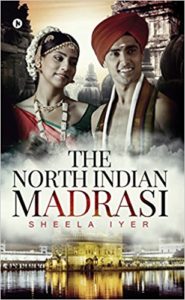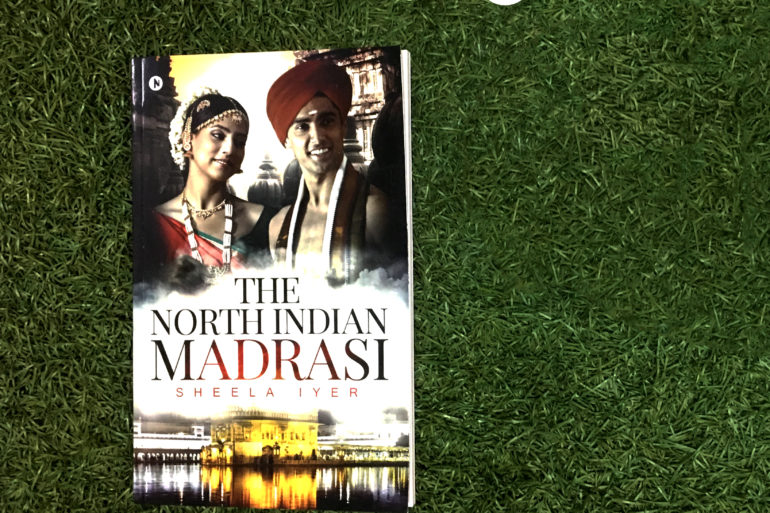The North Indian Madrasi-NP Recommends
 Title: The North Indian Madrasi
Title: The North Indian Madrasi
Author: Sheela Iyer
Genre: Fiction, Autobiography
The North Indian Madrasi is a short and simple book about the life experiences and the journey of a South Indian who grew up in North India. The author, Sheela Iyer, having spent over thirty years in North India, has a lot of fond memories to look back to.
She has taken a stroll down memory lane and through this book, she invites the readers to join her as she talks about childhood, friends, awkward teenage romance, growing up and a lot more that will leave the readers with a smile on their faces. Splitting each major difference between the two sides into different chapters, the author has humorously brought out how or why a South Indian might take time to adjust or get used to North Indian traditions. Since there are a lot of South Indians settled in North India, she feels that a majority of the readers can relate to such experiences and wants to share it with everyone.
Excerpts:
For a Madrasi, training the daughters in Carnatic classical music was compulsory. It would be useful during Navaratri and the ‘bride seeing’ ceremony. Boys are not to be bothered as they are busy with Maths. They must go to IIT, IIM or go for IAS. Otherwise, they are simply “IYYAYYO”! Iyyayyo is a very versatile expression. In the context of the boys who can’t learn Maths, or get into engineering or management or the administrative service, iyyayyo represents hopelessness.
In other situations, it can mean a range of emotions from anger, sadness, surprise, pity, etc. For each, the tone of the voice varies from the lower octaves to very high. The eyebrows too justify the emotion quantitatively and qualitatively; the higher the eyebrows, the greater the gravity of the matter. This expression sadly does not have a counterpart in NI. Iyyayyo gives the SI a unique identity.
Why we love it:
The North Indian Madrasi gives you a sense of understanding about a lot of things including the differences the two halves of our country have when it comes to culture, traditions, and societal values and so on while also detailing the few common things that both sides share. What sets this apart from the other books of this genre is the fact the author is not trying to assert that one side is better than the other nor is she trying to paint this as an autobiography. She is merely being nostalgic and taking a stroll down memory lane.
Since this is a true account, we can see events unfold from the author’s point of view right from when she was a child to when she is a mature adult. The difference in perspectives has been narrated in such a way that this book will capture the attention of both, the young readers and the adults. Right from the chapter names, every story talks about how festivals and important occasions are celebrated and how one side does it differently from the other. The description is simple yet engaging enough to make a reader want to experience this in real life. To add to this, this book helps eradicate the common misconception that the two sides don’t get along well with funny and thought-provoking storylines that will leave the reader laughing and thinking at the same time.
You will love it if:
You’ve read books like A ticket to childhood by Nguyễn Nhật Ánh, or A year in Provence by Peter Mayle. 2 States, Chennai Express, and the evergreen classic Roja are movies that are not exactly similar to this book but bring out the North-South division in our country.
You can find this book on Amazon or our Store.

